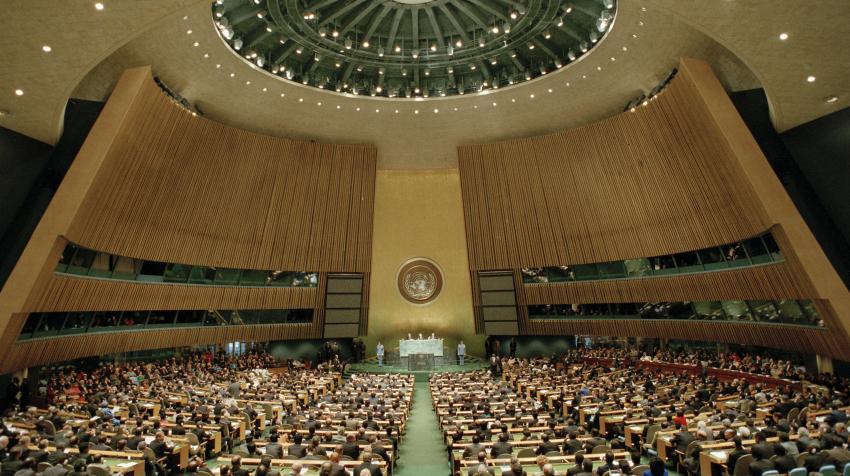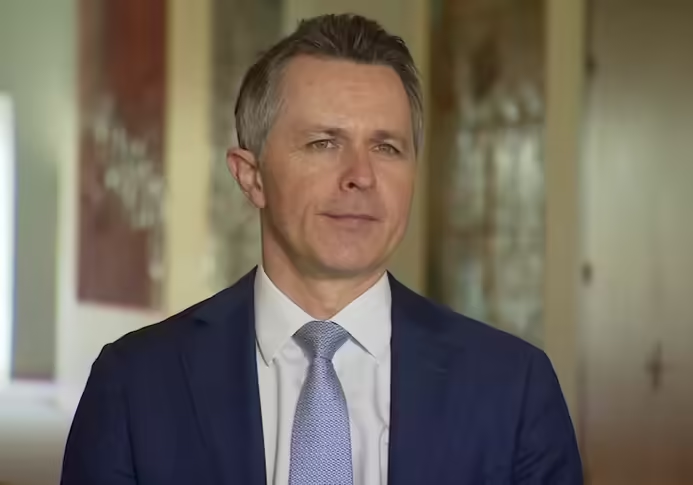Australia/Israel Review, Featured
Editorial: Hopes for UN reform
Dec 15, 2021 | Colin Rubenstein

At a time when the world is facing an unprecedented array of challenges, the politicised and dysfunctional state of the United Nations and its associated bodies and organs cries out for major reforms more than ever. Fortunately, there are some genuine reasons to hope such reform may soon become possible.
There is no shortage of global crises that demand action – Iran’s nuclear weapons program; China’s increasing aggression; the COVID-19 pandemic; climate change; the crisis in Afghanistan following the Taliban takeover, and many more.
The United Nations was conceived in the wake of the horrors of World War II as a better way for the world to mobilise in times of crisis, and improve relations in times of calm. Yet the broken UN system has instead often made itself a worrying part of the problem.
UN processes are often cynically exploited by undemocratic countries engaging in selfish and destructive behaviour to whitewash abuses and undermine effective responses.
In addition, for decades, the tiny country of Israel, the only Jewish state, has been used as a convenient scapegoat – absorbing a ridiculous amount of the UN’s attention, and singled out and vilified out of all proportion and context. This occurs in almost every UN forum and organ – even seemingly apolitical ones like the World Health Organisation (WHO) or the UN Educational, Scientific and Cultural Organisation (UNESCO).
Symbolic of the often Orwellian flavour of the UN’s obsession with Israel was the infamous 2001 World Conference against Racism, Racial Discrimination, Xenophobia and Related Intolerance, known as the Durban Conference. As veteran human rights campaigner Anne Bayefsky recalls, this degenerated into a “global antisemitic hatefest” that essentially resurrected the infamous 1975 UN General Assembly (UNGA) Resolution 3379 (repealed in 1991) equating Zionism with racism.
Yet 2021 saw a growing number of countries distancing themselves from anything to do with the 2001 Durban conference. Durban IV in September was the third time the UN held a conference to re-affirm Durban, and its least successful effort yet. No fewer than 38 states boycotted it, including three-quarters of the EU – usually the most unwavering boosters of the UN.
Meanwhile, at the misnamed and hypocritical UN Human Rights Council (UNHRC), many European nations have in recent years been following past US and Australian examples and automatically boycotting and voting against resolutions proposed under the grossly discriminatory Agenda Item 7. This agenda item requires that Israel’s treatment of the Palestinians be debated and condemned at every single session of the UNHRC, while all the rest of the world’s conflicts and human rights problems are considered under Agenda Item 4.
In addition, the UN’s highly destructive agency for Palestinian refugees, the United Nations Relief and Works Agency for Palestine Refugees in the Near East (UNRWA), has never been subject to more scrutiny and financial pressure. In late November, an international fundraising conference for UNRWA failed to raise anywhere near the US$100 million the organisation said it needs, and UNRWA Commissioner-General Philippe Lazzarini claimed the organisation was “on the brink of collapse.”
Dramatic claims are frequently a part of UNRWA’s fundraising pitch, but there is no doubt that its funding problems also reflect the fact that there is increasing international recognition that UNRWA is far from a neutral provider of services to refugees. It is a body actively creating obstacles to Israeli-Palestinian peace by promoting incitement; by making refugee status a Palestinian birthright and thus expanding the number of such “refugees” ad infinitum; and by spruiking for a so-called Palestinian “right of return” to Israel that has no basis in international law and is incompatible with the goal of two states for two peoples.
The Trump Administration withdrew US funding from UNRWA, and while the Biden Administration restored it, for the first time new conditions regarding incitement in education were successfully imposed. Meanwhile, Arab states increasingly have no interest in contributing to UNRWA, and even in Europe UNRWA’s work has come under greatly increased scrutiny.
Even in the General Assembly, there may be hope for change, despite the long-standing tradition there that, as the famous Israeli diplomat Abba Eban once quipped, “If Algeria introduced a resolution declaring that the earth was flat and that Israel had flattened it, it would pass by a vote of 164 to 13 with 26 abstentions.”
And indeed, December saw the passage of the usual annual cavalcade of anti-Israel resolutions. According to UN Watch, between 2015 and 2020, the UNGA passed 115 condemnatory resolutions against Israel and 45 against the rest of the world combined.
Yet the historic 2020 Abraham Accords have led a widening circle of Arab and Muslim countries to establish close and warm relations with Israel, while Israel’s ties with traditionally non-aligned countries including India, Brazil, and numerous states of Africa and Latin America have also improved dramatically. These changing diplomatic realities have yet to lead to major shifts in UN voting, but there is every likelihood that the rigid bloc system that has long guaranteed a majority for virtually any anti-Israel resolution could soon break down.
Australia has long been an important voice for UN reform and has an excellent, honourable record of opposing the farcically one-sided anti-Israel votes that re-appear every year.
Australia does not have the power to reform the UN by itself, but it should now seek to extend its increasingly impressive international leadership role and help spearhead a positive movement for change at the world body through the power of its vote and the principled messages it sends to Europe and our other allies. There have never been better reasons to hope that a democratic movement for change can, over time, help the UN overcome its self-defeating Israel obsession. Doing so would allow the world body an opportunity to refocus its priorities and reform its structures so that it can genuinely help serve the causes of international peace, cooperation, and welfare – all of which would greatly benefit the future of Australia and the free world.
Tags: Australia, Israel, UNHRC, United Nations, UNRWA






